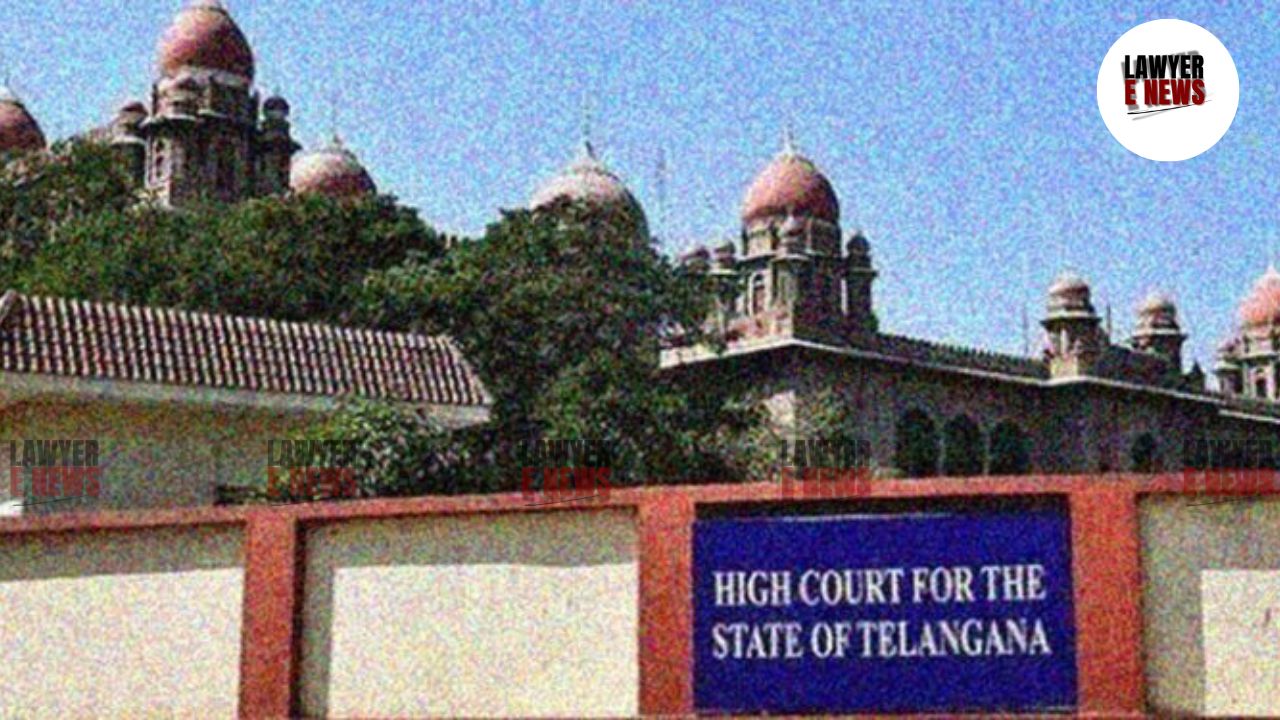-
by sayum
14 February 2026 2:22 PM



The Telangana High Court directed the State Bank of India (SBI) to reconsider its decision to dismiss an employee following his acquittal in a related criminal case. Justice T. Madhavi Devi, presiding over the case of Kadavath Hari Singh v. The Director & Ors., emphasized that acquittal on criminal charges requires careful re-evaluation of disciplinary decisions to ensure fairness and justice.
"Delay in Filing Appeal Cannot Obscure Right to Fair Review"
Kadavath Hari Singh, a Deputy Manager at SBI, was dismissed from service in 2013 following allegations of financial irregularities during his tenure as Branch Manager at Bodhan Branch. The charges included opening fictitious accounts, unauthorized fund transfers, and causing a purported loss of ₹128.16 lakh. Concurrently, criminal proceedings were initiated, leading to his acquittal by the Judicial First Class Magistrate, Bodhan, in 2018.
Singh filed an appeal against his dismissal only after his acquittal, citing health issues and financial constraints for the delay. However, SBI rejected the appeal as time-barred, prompting him to file a writ petition.
Legal Issues and Court Observations
Natural Justice in Disciplinary Proceedings:
Singh contended that the inquiry process violated principles of natural justice, as he was not provided with essential documents to prepare his defense. While the court acknowledged this claim, it noted that Singh did not adequately demonstrate how the omission prejudiced his case.
Justice T. Madhavi Devi stated:
“The contention that the departmental inquiry is bad in law merely due to non-furnishing of documents cannot be sustained, particularly when the petitioner failed to challenge the dismissal order in time.”
Impact of Criminal Acquittal:
The court held that the bank's refusal to reconsider the dismissal, despite the criminal acquittal on similar facts, was unjustified.
Observation:
“When the criminal case has ended in acquittal on the same facts, the respondents ought to have considered reinstatement based on the said judgment.”
Delay and Laches:
Addressing the five-year delay in filing the appeal, the court noted that Singh’s health issues and financial difficulties provided reasonable cause. The court emphasized that delay should not overshadow substantive justice, particularly when procedural irregularities and acquittal were evident.
Citing the Chennai Metropolitan Water Supply case, the court observed:
“A constitutional court must weigh the explanation for delay and balance it against the broader interest of justice.”
The High Court directed SBI to:
Review the dismissal order in light of the acquittal judgment dated June 27, 2018.
Decide on the petitioner’s reinstatement or other appropriate relief within three months.
The court clarified that the bank must carefully consider the exoneration of the petitioner in the criminal trial and balance the principles of equity and fairness in its decision.
This judgment highlights the importance of reassessing disciplinary actions in public employment when the foundational criminal charges are disproved. It reinforces the judiciary's commitment to upholding procedural fairness and ensuring that technicalities like delay do not obstruct justice.
Date of Decision: December 31, 2024
